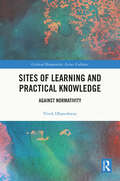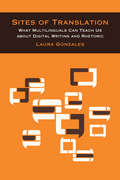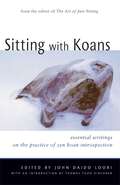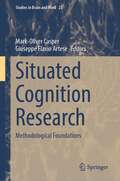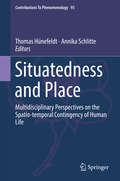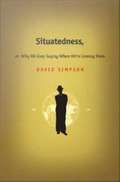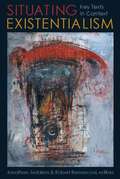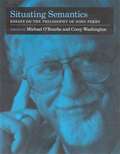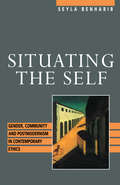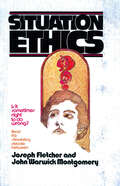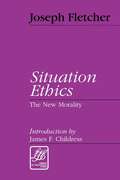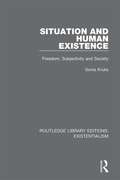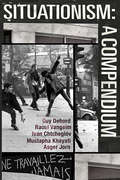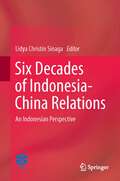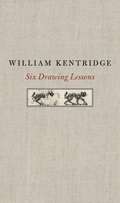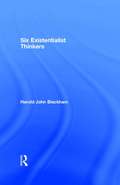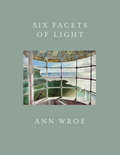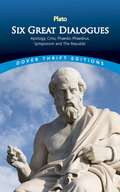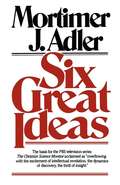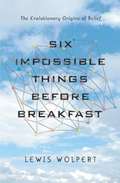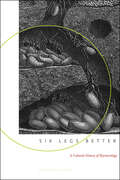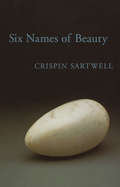- Table View
- List View
Sitara: सितारा
by Sanjay Sinhaसितारा पुस्तक संजय सिन्हा द्वारा लिखी गई है, जो जीवन के अनुभवों और रिश्तों की गहराई को सरल कहानियों के माध्यम से व्यक्त करती है। यह पुस्तक उन लघु कथाओं का संग्रह है, जो रोजमर्रा के जीवन में हमारे सामने आने वाले प्रश्नों, दुविधाओं और भावनाओं से जुड़ी हैं। पुस्तक की शीर्षक कहानी "सितारा" एक बच्चे के सपनों और आदर्शों की यात्रा को दर्शाती है। उसे माँ बचपन में ध्रुव तारा, प्रह्लाद और स्वामी विवेकानंद की कहानियाँ सुनाती है, जिससे उसके मन में अच्छा इंसान बनने की महत्वाकांक्षा विकसित होती है। कई कहानियाँ व्यक्तिगत संघर्ष, संबंधों की मिठास और जीवन के उतार-चढ़ाव को उजागर करती हैं। संजय सिन्हा की लेखन शैली सरल होते हुए भी पाठकों के दिलों को छूती है। वे छोटे-छोटे अनुभवों में जीवन के गहरे सत्य खोज निकालते हैं। एक कहानी में वे माँ के इस संदेश को साझा करते हैं कि “चाहे कुछ भी बनो, लेकिन सबसे पहले एक अच्छा इंसान बनो।” यह पुस्तक भावनाओं, रिश्तों और आत्मविश्लेषण के महत्व पर जोर देती है। संजय सिन्हा ने इन कहानियों के जरिए पाठकों को जीवन को सहज और सकारात्मक रूप से देखने का दृष्टिकोण दिया है, जो प्रेरणा और सोच का नया आयाम प्रस्तुत करती है।
Sites of Exposure: Art, Politics, and the Nature of Experience (Studies in Continental Thought)
by John RussonJohn Russon draws from a broad range of art and literature to show how philosophy speaks to the most basic and important questions in our everyday lives. In Sites of Exposure, Russon grapples with how personal experiences such as growing up and confronting death combine with broader issues such as political oppression, economic exploitation, and the destruction of the natural environment to make life meaningful. His is cutting-edge philosophical work, illuminated by original and rigorous thinking that relies on cross-cultural communication and engagement with the richness of human cultural history. These probing interpretations of the nature of phenomenology, the philosophy of art, history, and politics, are appropriate for students and scholars of philosophy at all levels.
Sites of Learning and Practical Knowledge: Against Normativity (Critical Humanities Across Cultures)
by Vivek DhareshwarThis book examines the relationship between cultural difference and practical knowledge and its implications for the study of humanities and the social sciences. It sketches a meta-theory of Western thought to grasp the conceptual distortions that result when a normatively structured theoretical way of understanding the world seeks to displace practical forms of understanding. The book draws on both Western thinkers such as Nietzsche, Marx, Wittgenstein and Foucault and Indian thinkers such as Gandhi, Tagore and Balagangadhara to formulate a practical epistemology that delimits theoretical knowledge by regenerating experiential knowledge that was the hallmark of Indian intellectual traditions and provides the intellectual resources for rejecting normativity. By thus preparing the ground for a radical reconceptualization of the human sciences it seeks to overcome the loss of concepts and the violence generated by the grafting of ill–understood and experience-occluding normative conceptual structures on the fabric of practical life. Finally, the author offers an alternative conceptualization of Indian sociality through the idea of a practitional matrix, which explains both why the West necessarily misunderstood or misdescribed India and how that misdescription enables us to theorize the West. Part of Critical Humanities across Cultures series, this book will be an essential read for scholars and researchers of philosophy, anthropology, sociology, religious studies, post-colonial studies, cultural studies, Indian studies and literature.
Sites of Translation: What Multilinguals Can Teach Us about Digital Writing and Rhetoric (Sweetland Digital Rhetoric Collaborative)
by Laura GonzalesWinner of the 2016 Sweetland Digital Rhetoric Collaborative Book Prize Sites of Translation illustrates the intricate rhetorical work that multilingual communicators engage in as they translate information for their communities. Blending ethnographic and empirical methods from multiple disciplines, Laura Gonzales provides methodological examples of how linguistic diversity can be studied in practice, both in and outside the classroom, and provides insights into the rhetorical labor that is often unacknowledged and made invisible in multilingual communication. Sites of Translation is relevant to researchers and teachers of writing as well as technology designers interested in creating systems, pedagogies, and platforms that will be more accessible and useful to multilingual audiences. Gonzales presents multilingual communication as intellectual labor that should be further valued in both academic and professional spaces, and supported by multilingual technologies and pedagogies that center the expertise of linguistically diverse communicators.
Sitting with Koans
by John Daido Loori Thomas Yuho KirchnerThe Zen tradition has just two main meditative practices: shikantaza, or "just sitting"; and introspection guided by the powerful Zen teaching stories called koans. Following in the tradition of The Art of Just Sitting (endorsed as a "A book we have needed for a long, long time"), this new anthology from John Daido Loori illuminates the subtle practice of koan study from many different points of view. Includes writings by: Robert Aitken William Bodiford Robert Buswell Roko Sherry Chayat Francis Dojun Cook Eihei Dogen Heinrich Dumoulin Hakuin Ekaku Victor Sogen Hori Keizan Jokin Philip Kapleau Chung-fen Ming-Pen Taizan Maezumi Dennis Genpo Merzel Soen Nakagawa Ruth Fuller Sasaki Sokei-an Sasaki Nyogen Senzaki Zenkei Shibayama Eido Shimano Philip Yampolsky Hakuun Yasutani Wayne Yokoyama Katsushiro Yoshizawa
Situated Cognition Research: Methodological Foundations (Studies in Brain and Mind #23)
by Mark-Oliver Casper Giuseppe Flavio ArteseThis volume assembles supporters and critics of situated cognition research to evaluate the intricacies, prerequisites, possibilities, and scope of a 4E methodology. The contributions are divided into three categories. The first category entails papers dealing with a 4E methodology from the perspective of epistemology and philosophy of science. It discusses whether to support explanatory pluralism or explanatory unification and focuses on possible compromises between ecological psychology and enactivism. The second category addresses ontological questions regarding the synchronic and diachronic constitution of cognitive phenomena, the localization of cognitive processes, and the theoretical issue of mutual manipulability. The third category analyzes how the theoretical and practical commitments of 4E approaches lead to empirically supported investigations of different phenomena, such as research on affordances and (chronic) pain. The book renews attention to the possible adverse consequences coming along with methodical fragmentation, as found among 4E positions. It provides an overdue first step towards a systematic and positive answer to methodological concerns in situated cognition research. Without this and further steps in the future, the growth of 4E´s significance for the scientific study of the mind might stall or even decrease. With such steps, situated cognition research could realize its frequently highlighted but so far not comprehensively accessed potential to change radically the modalities of how cognitive phenomena are studied. This volume is of interest to scholars of the philosophy of mind.
Situatedness and Place: Multidisciplinary Perspectives on the Spatio-temporal Contingency of Human Life (Contributions To Phenomenology #95)
by Thomas Hünefeldt Annika SchlitteThis book explores the ways in which the spatio-temporal contingency of human life is being conceived in different fields of research. Specifically, it looks at the relationship between the situatedness of human life, the situation or place in which human life is supposed to be situated, and the dimensions of space and time in which both situation and place are usually themselves supposed to be situated. Over the last two or three decades, the spatio-temporal contingency of human life has become an important topic of research in a broad range of different disciplines including the social sciences, the cultural sciences, the cognitive sciences, and philosophy. However, this research topic is referred to in quite different ways: while some researchers refer to it in terms of “situation”, emphasizing the “situatedness” of human experience and action, others refer to it in terms of “place”, emphasizing the “power of place” and advocating a “topological” or “topographical turn” in the context of a larger “spatial turn”. Interdisciplinary exchange is so far hampered by the fact that the notions referred to and the relationships between them are usually not sufficiently questioned. This book addresses these issues by bringing together contributions on the spatio-temporal contingency of human life from different fields of research.
Situatedness,: or, Why We Keep Saying Where We're Coming from
by David Simpson"Let me tell you where I'm coming from . . . "--so begins many a discussion in contemporary U. S. culture. Pressed by an almost compulsive desire to situate ourselves within a definite matrix of reference points (for example, "as a parent of two children" or "as an engineer" or "as a college graduate") in both scholarly inquiry and everyday parlance, we seem to reject adamantly the idea of a universal human subject. Yet what does this rhetoric of self-affiliation tell us? What is its history? David Simpson's Situatedness casts a critical eye on this currently popular form of identification, suggesting that, far from being a simple turn of phrase, it demarcates a whole structure of thinking. Simpson traces the rhetorical syndrome through its truly interdisciplinary genealogy. Discussing its roles within the fields of legal theory, social science, fiction, philosophy, and ethics, he argues that the discourse of situatedness consists of a volatile fusion of modesty and aggressiveness. It oscillates, in other words, between accepting complete causal predetermination and advocating personal agency and responsibility. Simpson's study neither fully rejects nor endorses the present-day language of self-specification. Rather it calls attention to the limitations and opportunities of situatedness--a notion whose ideological slippage it ultimately sees as allowing late-capitalist liberal democracies to function. Given its wide scope and lively rendering, Situatedness will attract a range of scholars in the humanities and legal studies. It will also interest all those for whom the politics of subjectivity pose real problems of authority, identity, and belief.
Situating Existentialism: Key Texts in Context
by Robert Bernasconi Jonathan JudakenThis anthology provides a history of the systemization and canonization of existentialism, a quintessentially antisystemic mode of thought. Situating existentialism within the history of ideas, it features new readings on the most influential works in the existential canon, exploring their formative contexts and the cultural dialogues of which they were a part. Emphasizing the multidisciplinary and global nature of existential arguments, the chosen texts relate to philosophy, religion, literature, theater, and culture and reflect European, Russian, Latin American, African, and American strains of thought. Readings are grouped into three thematic categories: national contexts, existentialism and religion, and transcultural migrations that explore the reception of existentialism. The volume explains how literary giants such as Dostoevsky and Tolstoy were incorporated into the existentialist fold and how inclusion into the canon recast the work of Kierkegaard and Nietzsche, and it describes the roles played by Jaspers and Heidegger in Germany and the Paris School of existentialism in France. Essays address not only frequently assigned works but also underappreciated discoveries, underscoring their vital relevance to contemporary critical debate. Designed to speak to a new generation's concerns, the collection deploys a diverse range of voices to interrogate the fundamental questions of the human condition.
Situating Existentialism: Key Texts in Context
by Robert Bernasconi Jonathan JudakenThis anthology provides a history of the systemization and canonization of existentialism, a quintessentially antisystemic mode of thought. Situating existentialism within the history of ideas, it features new readings on the most influential works in the existential canon, exploring their formative contexts and the cultural dialogues of which they were a part. Emphasizing the multidisciplinary and global nature of existential arguments, the chosen texts relate to philosophy, religion, literature, theater, and culture and reflect European, Russian, Latin American, African, and American strains of thought. Readings are grouped into three thematic categories: national contexts, existentialism and religion, and transcultural migrations that explore the reception of existentialism. The volume explains how literary giants such as Dostoevsky and Tolstoy were incorporated into the existentialist fold and how inclusion into the canon recast the work of Kierkegaard and Nietzsche, and it describes the roles played by Jaspers and Heidegger in Germany and the Paris School of existentialism in France. Essays address not only frequently assigned works but also underappreciated discoveries, underscoring their vital relevance to contemporary critical debate. Designed to speak to a new generation's concerns, the collection deploys a diverse range of voices to interrogate the fundamental questions of the human condition.
Situating Semantics: Essays on the Philosophy of John Perry
by Corey Washington Michael O'RourkeLeading contemporary analytic philosophers contribute original essays in each of the areas that have been most influenced by Perry's work--metaphysics, language, and mind. Perry himself contributes detailed and original replies.
Situating the Self: Gender, Community, and Postmodernism in Contemporary Ethics
by Seyla BenhabibThis book is an attempt to defend the tradition of universalism in the face of a triple-pronged critique by engaging with the claims of feminism, communitarianism, and postmodernism and by learning from them. It situates reason and the moral self more decisively in contexts of gender and community.
Situation Ethics: A Dialogue Between Joseph Fletcher & John Warwick Montgomery
by Joseph Fletcher John Warwick MontgomeryThis riveting philosophical debate pits Christian apologist, Dr. John Warwick Montgomery, against the situation ethicist, Joseph Fletcher, to grapple with the absoluteness of moral principles.
Situation Ethics: The New Morality (Library of Theological Ethics)
by Joseph FletcherIgniting a firestorm of controversy upon its publication in 1966, Joseph Fletcher's Situation Ethics was hailed by many as a much-needed reformation of morality--and as an invitation to anarchy by others. Proposing an ethic of loving concern, Fletcher suggests that certain acts--such as lying, premarital sex, adultery, or even murder--might be morally right, depending on the circumstances. Hotly debated on television, in magazines and newspapers, in churches, and in the classroom, Fletcher's provocative thesis remains a powerful force in contemporary discussions of morality. <p><p> The Library of Theological Ethics series focuses on what it means to think theologically and ethically. It presents a selection of important and otherwise unavailable texts in easily accessible form. Volumes in this series will enable sustained dialogue with predecessors though reflection on classic works in the field.
Situation and Human Existence: Freedom, Subjectivity and Society (Routledge Library Editions: Existentialism #9)
by Sonia KruksSocial philosophy oscillates between two opposing ideas: that individuals fashion society, and that society fashions individuals. The concept of ‘situation’ was elaborated by the French existentialist thinkers to avoid this dilemma. Individuals are seen as actively situating themselves in society at the same time as being situated by it. This book, first published in 1990, traces the development of the concept of situation through the work of Gabriel Marcel, Jean-Paul Sartre, Simone de Beauvoir and Maurice Merleau-Ponty. It shows how it illuminates questions of self or subjectivity, embodiment and gender, society and history, and argues that it goes far beyond the currently fashionable notions of the ‘death of the subject’.
Situationism: A Compendium
by Guy Debord Ivan Chtcheglov Mustapha Khayati Raoul Vaneigem Asger JornAfter Guy Debord's seminal Society of the Spectacle, this new compendium brings together eight other important situationist works. Ivan Chtcheglov opens proceedings via his Formulary for a New Urbanism (1953), with it's quasi-mythical demand that resonated down through generations: "The hacienda must be built", followed by two brief but illuminating pieces from Asger Jorn, who's sandpaper book cover later turned up under the same Factory Records roof as Manchesters' own Hacienda, on the Durrtti Column's "Return of the Durrutti Column" ( the title itself lifted from Andre Bertrand's détourned pro-situ comic strip). Debord's The Decline and Fall of the Spectacle-Commodity Economy-was an immediate, razor sharp response to the LA/Watts Riots of 1965, it's analysis of the relationship between the rioter and the meaningless, unaffordable commodities they loot or destroy resonating heavily today. Tunisian situationist Mustapha Khayati contributes Address to Revolutionaries of Algeria and of All Countries and the game changing "On the Poverty of Student Life", the match that arguably lit the fires of May 68'. Raoul Vaneigem's The Revolution of Everyday Life finishes things off in defiant fashion : ". You're f*%@g Around With Us? -- Not For Long!"
Six Decades of Indonesia-China Relations: An Indonesian Perspective
by Lidya Christin SinagaThis book analyses the relations between Indonesia and China in the regional dynamics of Southeast Asia. The rising China has influenced global and regional constellations, and also has direct impacts for Indonesia. While this fact should be viewed as an opportunity that needs to be fully utilised for the benefit of national development of Indonesia, we should also prepare for the threats embedded in this development, especially from the service and labour sectors. As such, this book suggests that equal positions in relations between Indonesia and China are absolutely necessary, since both countries need each other in their efforts to maintain the continuity of their development. It also argues that to further strengthen its position in relation to China in the future, Indonesia's diplomacy requires an integrated grand design that supports the creation of economic and political power in the face of the emergence of China's economic and military power.
Six Drawing Lessons
by William KentridgeOver the last three decades, the visual artist William Kentridge has garnered international acclaim for his work across media including drawing, film, sculpture, printmaking, and theater. Rendered in stark contrasts of black and white, his images reflect his native South Africa and, like endlessly suggestive shadows, point to something more elemental as well. Based on the 2012 Charles Eliot Norton Lectures, Six Drawing Lessons is the most comprehensive collection available of Kentridge’s thoughts on art, art-making, and the studio. <p><p> Art, Kentridge says, is its own form of knowledge. It does not simply supplement the real world, and it cannot be purely understood in the rational terms of traditional academic disciplines. The studio is the crucial location for the creation of meaning: the place where linear thinking is abandoned and the material processes of the eye, the hand, the charcoal and paper become themselves the guides of creativity. Drawing has the potential to educate us about the most complex issues of our time. This is the real meaning of “drawing lessons.” <p> Incorporating elements of graphic design and ranging freely from discussions of Plato’s cave to the Enlightenment’s role in colonial oppression to the depiction of animals in art, Six Drawing Lessons is an illustration in print of its own thesis of how art creates knowledge. Foregrounding the very processes by which we see, Kentridge makes us more aware of the mechanisms―and deceptions―through which we construct meaning in the world.
Six Existentialist Thinkers
by Harold John BlackhamIncludes summary but substantial accounts of the thought of Kierkegaard, Nietzsche, Jaspers, Marcel, Heidegger and Sartre, and a concluding essay that attempts to interpret the whole Existentialist movement.
Six Facets Of Light
by Ann Wroe'She's a genius, I believe, because she lights up every subject she touches.' Hilary Mantel A Spectator Book of the YearGoethe claimed to know what light was. Galileo and Einstein both confessed they didn't. On the essential nature of light, and how it operates, the scientific jury is still out. There is still time, therefore, to listen to painters and poets on the subject. They, after all, spend their lives pursuing light and trying to tie it down.Six Facets of Light is a series of meditations on this most elusive and alluring feature of human life. Set mostly on the Downs and coastline of East Sussex, the most luminous part of England, it interweaves a walker's experiences of light in Nature with the observations, jottings and thoughts of a dozen writers and painters - and some scientists - who have wrestled to define and understand light. From Hopkins to Turner, Coleridge to Whitman, Fra Angelico to Newton, Ravilious to Dante, the mystery of light is teased out and pondered on. Some of the results are surprising.By using mostly notebooks and sketchbooks, this book becomes a portrait of the transitoriness, randomness, swiftness, frustrations and quicksilver beauty that are the essence of light. It is a work to be enjoyed, pondered over, engaged with, provoked by; to be packed in the rucksack of every walker heading for the sea or the hills, or to be opened to bring that outside radiance within four dark town walls.Lifescapes by Ann Wroe is coming in August 2023.
Six Great Dialogues: Apology, Crito, Phaedo, Phaedrus, Symposium, the Republic (Dover Thrift Edition) (Dover Thrift Editions)
by PlatoPlato's 4th century B.C. Dialogues rank among Western civilization's most important and influential philosophical works. All six of these works feature authoritative translations by the distinguished classical scholar Benjamin Jowett.
Six Great Ideas
by Mortimer J. AdlerThis enlightening study is the result of group discussions at Dr. Adler's annual seminar in Aspen, Colorado, and conversations between Dr. Adler and Bill moyers filmed for public television.Each summer, Mortimer J. Adler conducts a seminar at the Aspen Institute in Colorado. At the 1981 seminar, leaders from the worlds of business, literature, education, and the arts joined him in an in-depth consideration of the six great ideas that are the subject of this book: Truth, Goodness, and Beauty - the ideas we judge by; and Liberty, Equality and Justice - the ideas we act on. The group discussions and conversations between Dr. Adler and journalist Bill Moyers were filmed for broadcast on public television, and thousands of people followed their exploration of these important ideas. Discarding the out-worn and off-putting jargon of academia, Dr. Adler dispels the myth that philosophy is the exclusive province of the specialist. He argues that "philosophy is everybody's business," and that a better understanding of these fundamental concepts is essential if we are to cope with the political, moral, and social issues that confront us daily.
Six Impossible Things Before Breakfast: The Evolutionary Origins of Belief
by Lewis Wolpert[From the book jacket] Why do 70 percent of Americans believe in angels, while others are convinced that they've been abducted by aliens? Why does every society around the world have a religious tradition of some sort? What makes people believe in improbable things when all the evidence points to the contrary? In Through the Looking Glass, the White Queen tells Alice that to believe in a wildly far-fetched fact, she simply needs to "draw a long breath and shut [her] eyes." Alice finds this advice ridiculous. But don't almost all of us, at some time or another, engage in magical thinking? Franklin Roosevelt and Winston Churchill canceled all appointments on Friday the 13th. Niels Bohr tacked a horseshoe over his desk-just to add some luck to his quantum universe. In Six Impossible Things Before Breakfast, evolutionary biologist Lewis Wolpert delves into the important and timely debate over the nature of belief, looking at belief's psychological basis to discover just what evolutionary purpose it could serve. Are there advantages to imaginary friends and fantasy worlds, superstitions and religions? Are we born with an evolutionary defense mechanism to believe in things that make us feel better about the world? Wolpert leads the reader through all that science can tell us about the beliefs of which we are so instinctually sure. He deftly explores these questions and the different types of belief - those of children, of animals, of the religious, and of those suffering from psychiatric disorders - and he asks whether it is possible to live without belief, or whether it is a necessary component of a functioning society.
Six Legs Better: A Cultural History of Myrmecology (Animals, History, Culture)
by Charlotte SleighThis “provocative, complex” cultural history examines how the study of ants influenced shifting perceptions of humanity in the nineteenth and twentieth centuries (Times Literary Supplement, UK).Ants long have fascinated linguists, human sociologists, and even cyberneticians. At the end of the nineteenth century, ants seemed to be admirable models for human life and were praised for their work ethic, communitarianism, and apparent empathy. They provided a natural-theological lesson on the relative importance of humans within creation and inspired psychologists to investigate the question of instinct and its place in the life of higher animals and humans. By the 1930s, however, ants came to symbolize one of modernity’s deepest fears: the loss of selfhood. Researchers then viewed the ant colony as an unthinking mass, easily ruled and slavishly organized.In this volume, Charlotte Sleigh uses specific representations of ants within the field of entomology from the late nineteenth to mid-twentieth centuries to explore the broader role of metaphors in science and their often unpredictable translations. Six Legs Better demonstrates the remarkable historical role played by ants as a node where notions of animal, human, and automaton intersect.
Six Names of Beauty
by Crispin SartwellBeauty may be in the eye of the beholder, but it's also in the language we use and everywhere in the world around us. In this elegant, witty, and ultimately profound meditation on what is beautiful, Crispin Sartwell begins with six words from six different cultures - ancient Greek's 'to kalon', the Japanese idea of 'wabi-sabi', Hebrew's 'yapha', the Navajo concept 'hozho', Sanskrit 'sundara', and our own English-language 'beauty'.Each word becomes a door onto another way of thinking about, and looking at, what is beautiful in the world, and in our lives. In Sartwell's hands these six names of beauty - and there could be thousands more - are revealed as simple and profound ideas about our world and our selves.


